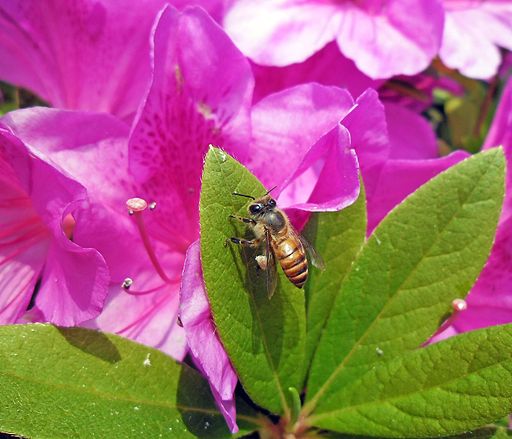 The 10,000-man Greek army, led by its general, Xenophon, was heading home from a battle with Persia in 401 BC when the weary men pitched camp in a lovely area called Trabzon, near the Black Sea. There they feasted on wild honey, which was abundant in the area. Soon after, the men collapsed by the thousands with dizziness, nausea, blurred vision, a lurching gait, and finally, an almost entire loss of muscle control.
The 10,000-man Greek army, led by its general, Xenophon, was heading home from a battle with Persia in 401 BC when the weary men pitched camp in a lovely area called Trabzon, near the Black Sea. There they feasted on wild honey, which was abundant in the area. Soon after, the men collapsed by the thousands with dizziness, nausea, blurred vision, a lurching gait, and finally, an almost entire loss of muscle control.
The army had been poisoned by the toxic honey, which had been made by bees collecting nectar from poisonous (to humans) rhododendron blossoms.
 The men were sick for several days, but finally managed to recover enough to continue their march back to Greece.
The men were sick for several days, but finally managed to recover enough to continue their march back to Greece.
In 67 BC, King Mithradates of Persia faced a Roman force that was far superior, led by Roman General Pompey. But Mithradates was familiar with the writings of Xenophon. He lured the Roman army toward Trabzon. The Romans feasted on the poisonous honey, fell ill, and were massacred by Mithradates’ army.